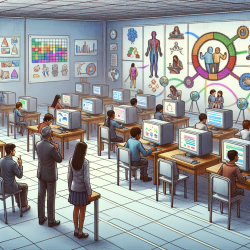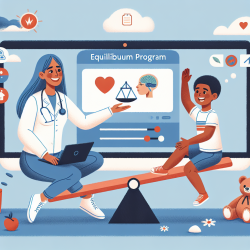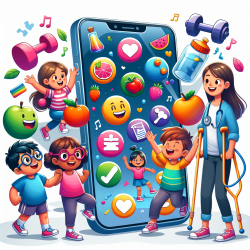Introduction
As professionals dedicated to improving child outcomes through online therapy services, it is crucial to leverage evidence-based practices and learn from successful global health initiatives. The research article titled Synthesis and translation of research and innovations from polio eradication (STRIPE): initial findings from a global mixed methods study provides valuable insights that can be applied to enhance our services. This blog will discuss key findings from the STRIPE study and how they can be implemented to improve online therapy services for schools.
Understanding External Factors
The STRIPE study identified external factors such as social, political, and economic barriers that impacted the success of polio eradication efforts. For online therapy services, understanding these external factors is equally important. For instance, socioeconomic status and access to technology can influence the effectiveness of online therapy. By conducting thorough assessments of the external environment, practitioners can tailor their services to meet the specific needs of different communities.
Engaging Stakeholders
One of the key strategies highlighted in the STRIPE study was the importance of engaging stakeholders, including community leaders and local influencers. In the context of online therapy, engaging parents, teachers, and school administrators is crucial. Regular communication and collaboration with these stakeholders can ensure that therapy goals are aligned with the educational objectives of the school and the individual needs of the child.
Capacity Building and Training
The STRIPE study emphasized the need for capacity building and training at various levels. For online therapy services, this translates to continuous professional development for therapists and training for school staff on how to support children during online sessions. Investing in training programs can enhance the skills of therapists and ensure that they are equipped to handle diverse challenges.
Adapting Delivery Strategies
Adapting delivery strategies to fit the local context was another critical lesson from the STRIPE study. In online therapy, this could mean using different technological platforms based on what is accessible and familiar to the students and their families. It may also involve customizing therapy materials to be culturally relevant and engaging for the children.
Monitoring and Evaluation
The importance of monitoring and evaluation was a recurring theme in the STRIPE study. For online therapy services, implementing robust monitoring and evaluation systems can help track progress and outcomes. Regular feedback from students, parents, and teachers can provide valuable insights into the effectiveness of the therapy and areas that need improvement.
Conclusion
The initial findings from the STRIPE study offer valuable lessons that can be applied to enhance online therapy services for schools. By understanding external factors, engaging stakeholders, building capacity, adapting delivery strategies, and implementing robust monitoring and evaluation systems, practitioners can improve the effectiveness of their services and create better outcomes for children.
To read the original research paper, please follow this link: Synthesis and translation of research and innovations from polio eradication (STRIPE): initial findings from a global mixed methods study.










